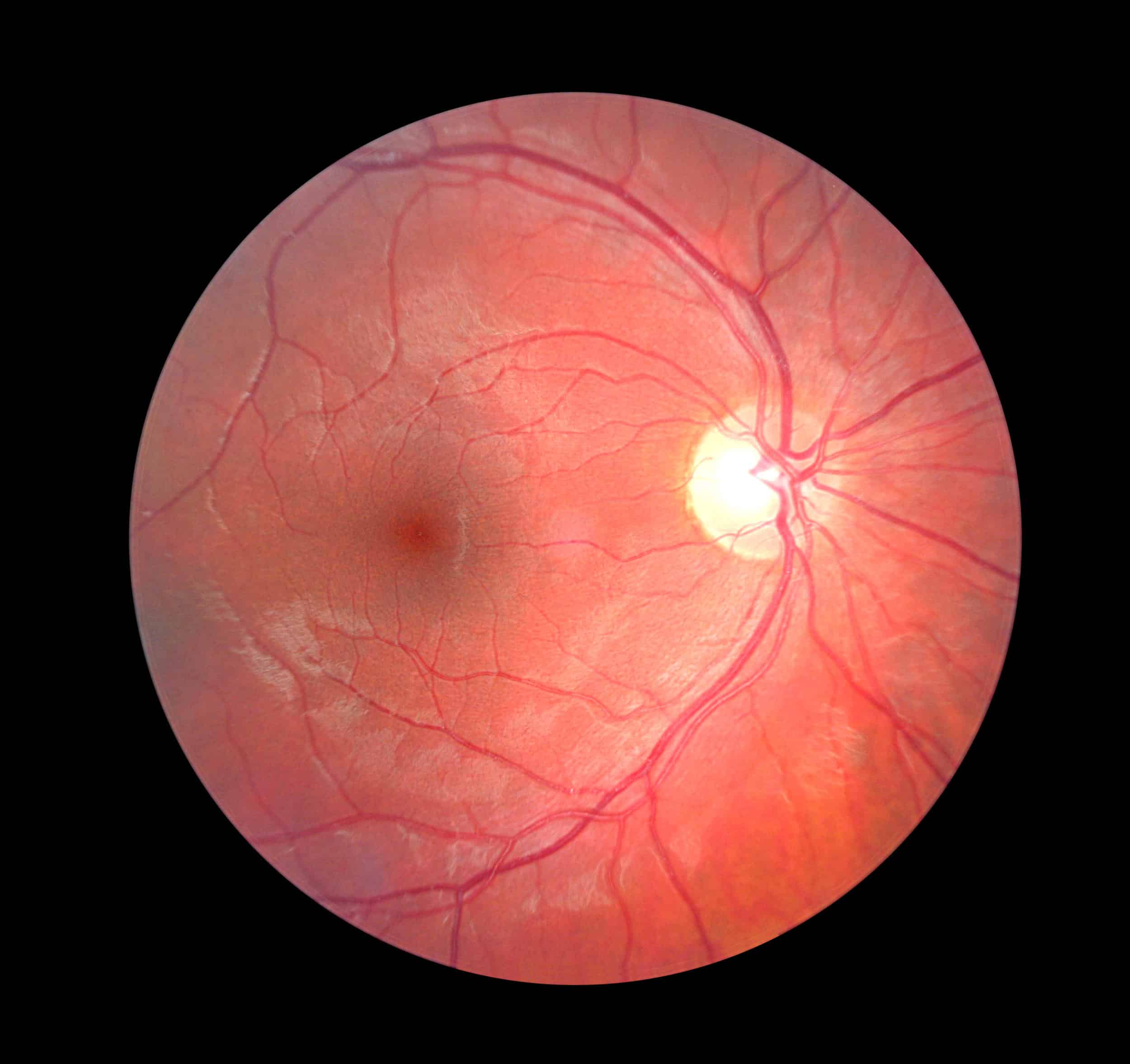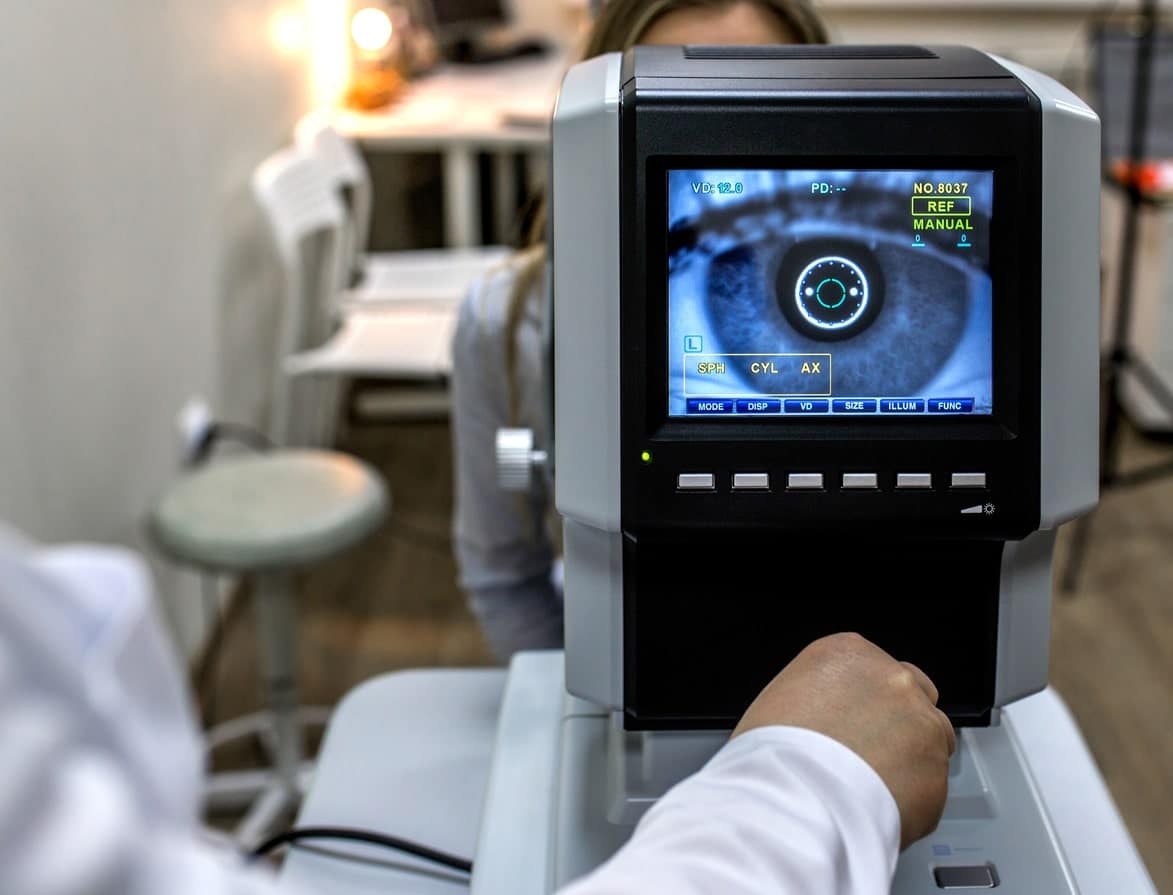
The term “floaters” is commonly used to describe cobweb-like threads or specks of light that drift across the field of vision. Both floaters and flashes are typically harmless. However, because they can be a warning sign of potentially significant eye problems, it is beneficial to know how to spot floaters and flashes and what to do if they occur.
What Causes Eye Flashes?
Flashers are brief sensations or the appearance of bright lights at the edge of vision caused by tension between the vitreous gel and the retina. As the vitreous gel rubs or pulls on the retina, the retina becomes stimulated, sending signals to the brain that are interpreted as flashes of light. As we age, it is more common to experience flashes. However, if you notice the sudden appearance of light flashes you should see your ophthalmologist immediately.
What Causes Eye Floaters?
As we age, the vitreous gel thickens and pulls away from the retina, causing floaters that appear like small specks or clouds moving in front of your vision. They are actually small clumps of cells, pigments, or gel matrix that float inside the vitreous of the eye which cast shadows on the retina, and tend to move when you try to look at them. This can sometimes cause a small amount of bleeding in the eye that may appear as new floaters.
Flashes And Floaters Are Normal

We consider flashes and floaters a normal consequence of aging and tend to become less noticeable with time. However, patients should always be examined at the onset of these symptoms, as they can be a warning sign of more serious conditions, such as posterior vitreous detachment, retinal tear, or retinal detachment.
Posterior vitreous detachment is most common in people who:
- are nearsighted
- have undergone cataract surgery
- have had a YAG laser surgery
- had inflammation inside the eye
A tear in the retina is always a serious condition if left untreated, and can lead to a retinal detachment. You should contact your doctor immediately if you notice:
- even one sudden new floater
- you experience sudden flashes of light
How To Know If You Have Flashes Or Floaters
One of the easiest ways to know if you have flashes or floaters is to look at a blank wall or at the clear sky. It is when observing a space that is relatively devoid of objects that these visual phenomena may be most visible. Flashes may also be noticed when you blink, appearing momentarily as a flash on the inner eyelid.
Will I Be Able to See My Flashes/Floaters?
Flashes and floaters are not caused by any particular structure on the eye. Rather, they are shadows on the retina that occur when light lands on clumps of matter in the central area of the eye known as vitreous fluid. If you were to look in a mirror, you would not see this matter or the floaters or flashes, as they are visual apparitions cast onto the retina at the back of the eye.
Are Flashes or Floaters Mistaken for Cataracts?

Flashes and floaters present indications that are quite different than the symptoms of cataracts because the conditions that cause them are each unique. Cataracts are formed of particles of protein that clump on the lens of the eye. The grouping of proteins clouds vision and may create blurriness and haziness that progresses as proteins continue to build upon the eye.
Floaters and flashes do not relate to the lens of the eye but to the vitreous fluid that sits in the space between the front and the back of the eye. Here, clumps of pigment or cells cast a shadow on the retina at the back of the eye. It is the shadow that appears as tiny objects floating across vision.
Cataracts typically progress over many years. This problem can be resolved by replacing the affected lens with an artificial fixture called an intraocular lens. Flashes and floaters could indicate retinal disease and may present symptoms that occur and progress quickly. An issue such as retinal detachment could result in vision loss. Therefore, it is critical to obtain medical care right away if severe floaters or flashes develop spontaneously.
Are Flashes/Floaters Painful?
Typically, floaters and flashes occur without causing eye pain, even in the instance of retinal detachment. Pain should not be used as an indication of potential eye trouble. If floaters or flashes worsen suddenly, prompt medical attention is necessary.
Eye Floaters Treatment
Generally, we do not treat floaters and they will settle out of vision within weeks or months. Those that do not clear, or are caused by hemorrhage, may be removed surgically. If you experience a sudden new or more noticeable floater, contact your doctor right away as this may be an indication of a more serious problem.
Surgery For Eye Floaters
Proper treatment is necessary to treat floaters and flashes that are caused by a retinal tear. Early treatment for a retinal tear could decrease the risk of retinal detachment. Treatment conducted early is also more conservative than what would be necessary if the retina begins to detach from the back wall of the eye. Common methods of treating a retinal tear include:
- Photocoagulation. This laser procedure is performed on an outpatient basis under local anesthetic; medicated drops that numb the eye. To address the tear, a beam of laser light is directed through the pupil at the front of the eye. This light essentially welds the retinal tear closed by heating tissue, causing it to reattach.
- Cryopexy. This freezing technique is also an outpatient procedure that is made comfortable with numbing eye drops. The technique administers freezing temperature via a small probe that is set on the outer surface of the eye directly over the tear. Like heat from the laser, the freezing temperature administered in cryopexy causes tissue to reconnect. In this technique, tissue re-attaches through a mild scarring effect.

If retinal detachment occurs, surgery to reattach this structure to the back of the eye is needed within a matter of days. Varying techniques may be discussed based on the severity of detachment and predicted outcome.
Schedule A Consultation
If you would like more information about flashes and floaters, contact our office today! Call 1-855-286-2020 to schedule a consultation with one of our eye care specialists.




